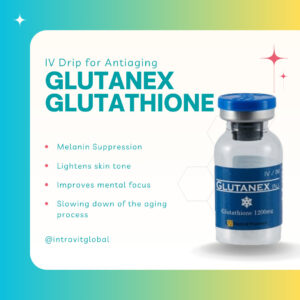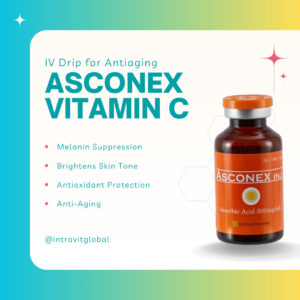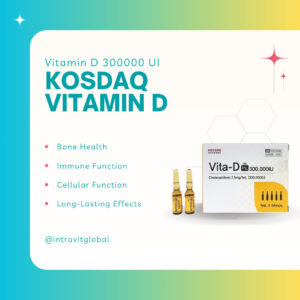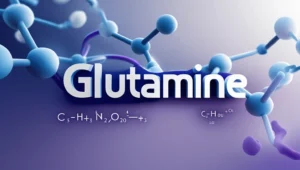Oxidative Stress: Prevention and Treatment
Table of Contents

Oxidative Stress: What Is It?
Every cell in your body undergoes a constant battle between harmful molecules called free radicals and protective substances known as antioxidants. When this balance tips in favor of free radicals, a condition known as oxidative stress arises. Oxidative stress plays a pivotal role in aging, chronic diseases, and overall well-being. But what exactly is oxidative stress, and how can we fight it effectively? Let’s dive in.
Understanding Oxidative Stress
At its core, oxidative stress occurs when there is an imbalance between the production of free radicals and the body’s ability to neutralize them with antioxidants.
- Free Radicals: These are unstable molecules produced naturally during metabolism or due to external factors like pollution or UV radiation. They seek to stabilize themselves by “stealing” electrons from healthy cells, causing damage.
- Antioxidants: These are compounds found in foods and supplements that counteract free radicals by donating electrons, effectively stopping cellular damage.
Oxidative stress is not inherently bad—it plays a role in processes like cell signaling. However, prolonged oxidative stress can wreak havoc on the body.
The Science Behind Oxidative Stress
Oxidative stress affects multiple components of the cell, including:
- DNA: Damaged DNA can lead to mutations and increase the risk of cancer.
- Proteins: Structural and functional proteins lose their integrity, contributing to aging.
- Lipids: Oxidized lipids in cell membranes compromise their protective barrier, leading to cell death.
Mitochondria, the powerhouse of the cell, are particularly susceptible to oxidative damage. This can impair energy production, leading to fatigue and chronic illnesses.
Causes of Oxidative Stress
Several factors contribute to oxidative stress:
- Environmental Factors:
- Exposure to pollutants and toxins.
- Prolonged UV or X-ray exposure.
- Lifestyle Factors:
- Diets high in processed foods and sugar.
- Smoking and excessive alcohol consumption.
- Sedentary behavior or overexercising.
- Medical Conditions:
- Diabetes, obesity, and cardiovascular diseases are closely linked to oxidative stress.
Signs and Symptoms of Oxidative Stress
Recognizing oxidative stress early can help mitigate its effects:
- Chronic fatigue and low energy levels.
- Premature aging (wrinkles, hair loss).
- Recurring infections and slow wound healing.
- Brain fog and memory issues.
Oxidative Stress and Chronic Diseases
Prolonged oxidative stress contributes to:
- Cardiovascular Diseases: Damage to blood vessels and cholesterol oxidation lead to heart disease.
- Neurodegenerative Disorders: Free radicals are implicated in conditions like Alzheimer’s and Parkinson’s.
- Cancer: Oxidative damage can trigger mutations in DNA that lead to uncontrolled cell growth.
Role of Antioxidants in Fighting Oxidative Stress
Antioxidants are vital for maintaining cellular health. These can be classified into:
- Enzymatic Antioxidants: Produced by the body (e.g., glutathione).
- Non-Enzymatic Antioxidants: Found in foods (e.g., Vitamin C, Vitamin E).
Foods like berries, green tea, and spinach are excellent sources of antioxidants.
Vitamin Drips and Immunity: A Modern Solution
In recent years, vitamin drip therapy has emerged as an effective way to tackle oxidative stress.
- What Is It? Administered intravenously, vitamin drips deliver high doses of nutrients directly into the bloodstream, bypassing digestion.
- Benefits: Enhanced absorption, improved immunity, and reduced oxidative damage.
- Availability in the UK: Clinics offering vitamin drips for immunity are increasingly popular, providing treatments tailored to individual needs.
Natural Ways to Reduce Oxidative Stress
- Healthy Diet:
- Incorporate antioxidant-rich foods like dark chocolate, nuts, and kale.
- Regular Exercise:
- Moderate-intensity exercise boosts antioxidant production.
- Stress Management:
- Meditation, yoga, and quality sleep are powerful tools against oxidative stress.
Supplements to Fight Oxidative Stress
Supplements such as Vitamin C, Vitamin E, and selenium can help combat oxidative damage. However, consult a healthcare provider before starting supplementation to avoid overdosing.
Lifestyle Changes to Minimize Oxidative Stress
- Reduce exposure to pollutants and harmful chemicals.
- Stay hydrated to flush out toxins.
- Protect skin from excessive sun exposure with sunscreen.
Frequently Asked Questions (FAQs)
What are the best foods for reducing oxidative stress?
Foods rich in antioxidants like blueberries, spinach, and nuts are highly effective.Can oxidative stress be reversed?
Yes, with lifestyle changes, a balanced diet, and antioxidants, oxidative damage can often be mitigated.What is the link between oxidative stress and aging?
Oxidative stress accelerates the aging process by damaging DNA, proteins, and lipids.Are vitamin drips effective against oxidative stress?
Yes, they provide targeted antioxidant therapy, improving overall health and immunity.Is oxidative stress linked to mental health?
Emerging research suggests a connection between oxidative stress and anxiety or depression.How can I test for oxidative stress?
Biomarkers like malondialdehyde (MDA) and tests for antioxidant levels can measure oxidative stress.
Conclusion
Oxidative stress is a complex but manageable condition. By adopting a healthier lifestyle, consuming antioxidant-rich foods, and exploring innovative treatments like vitamin drips, you can reduce its harmful effects. Prevention is the best cure—start your journey toward better health today!
-
Vitamin Drips
Glutanex Glutathione 1200mg IV Drip for Antiaging, Melanin Suppression, Antioxidant Skin Brightness Benefits
£20.00 – £120.00 Select options This product has multiple variants. The options may be chosen on the product pageRated 0 out of 5 -
Vitamin Drips
Asconex Vitamin C (Ascorbic Acid) IV Drip for Antiaging, Melanin Suppression, Antioxidant and Skin Brightness Benefits
£10.00 – £70.00 Select options This product has multiple variants. The options may be chosen on the product pageRated 0 out of 5 -
Vitamin Drips
Kosdaq Vitamin D 300000 IU Cholecalciferol per vial box of 10 ampoules
£20.00 – £140.00 Select options This product has multiple variants. The options may be chosen on the product pageRated 0 out of 5
Checkout our Facebook Page and leave your review about our Health Care Products.






